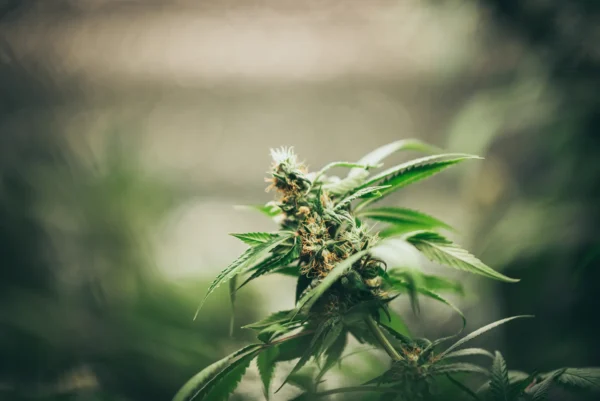Cannabis is one of the most consumed drugs globally by young people when accounting for both its medical and recreational use. The prevalence of cannabis use varies across countries, with approximately 18% of 16-to-19-year-olds in Canada and the US and 10% in England reporting use in the last 30 days. Yet, there is little research examining perceptions of cannabis use risk to mental health in countries with differing cannabis regulations.
In recent years, a number of countries have made significant changes to their cannabis policy, including legalising both medical and non-medical cannabis. In 2018, Canada legalised non-medical cannabis for adults over the age of 18, although provinces set their own minimum legal age of sale. In the US, 37 states have made medical cannabis available, while 19 states and the District of Columbia have legalised adult-use non-medical cannabis. In Europe, legalisation efforts have mainly focused on medical cannabis. For example, the UK rescheduled medical cannabis in November 2018, however, the sale of non-medical cannabis remains prohibited.
Previous studies indicate that young people may be more likely to report negative effects of cannabis on their mental health, compared to those aged greater than 25 years old. Furthermore, it is likely that risk perceptions play a role in cannabis use. Nonetheless, there is conflicting evidence on whether perceptions of cannabis risks change following the legalisation of medical and/or non-medical cannabis. A recent study aimed to examine such perceptions among young people between 2017 and 2021 in countries with varied cannabis policies: Canada, the US, and England.
Methods of the Study
The researchers used assessed data from the International Tobacco Control Policy Evaluation Project (ITC) You Tobacco and Vaping Survey – an online survey among young people in Canada, England, and the US. Repeat cross-sectional data were analysed from 7 survey waves: annual waves conducted around August of each year, with additional semi-annual waves (around February) in 2020 and 2021. Respondents aged 16 to 19 years old were recruited from the Nielsen Consumer Insights Global Panel and their partner panels.
All respondents were asked, “How much do you think people risk harming their mental health when they use marijuana/cannabis on a regular basis?”, with response options ranging from “no risk” to “great risk”.
Results of the Study
Data from 89,158 survey respondents were included in the final analysis. The majority of the sample were aged 18-19 years (50.6% to 53.5% depending on country), were male (51.0% to 52.2%), identified as White (56.2% to 57.8%), and had never used cannabis (69.4% to 76.6%).
Perceived Risk of Cannabis to Mental Health
Overall, few respondents perceived that cannabis posed “no risk” to mental health (3.3% to 18.3%, depending on country and survey wave). Furthermore, in Canada, there was little change in perceptions that cannabis use posed “no risk” to mental health during the study period except for a decrease in August 2021. This was consistent with previous research which also indicated that perceptions did not change after the legalisation of non-medical cannabis in Canada in October 2018.
Young people in Canada and England were less likely to perceive cannabis use as “no risk” compared with their American counterparts. These differences persisted after Canadian non-medical legalisation, despite cannabis remaining illegal in many US states. Interestingly, young people in US states where cannabis was illegal were more likely to report that cannabis use posed “no risk” to mental health, contrary to previous research and beliefs that cannabis legalisation reduces negative perceptions of cannabis use.
The prevalence of perceptions that cannabis use poses no risk to mental health decreased during the study period in the US, despite many jurisdictions making cannabis more available for either medical or recreational reasons. Overall, these findings suggest that legalisation does not appear to have an immediate or substantial impact on reducing risk perceptions of cannabis use.
The researchers suggest that, in Canada and England, effects of legalisation may have been diminished by public/media discussions in the period leading up to legalisation. For example, in the period leading up to medical cannabis legalisation in the UK, there was significant media coverage of a campaign that highlighted the effects of medical cannabis in children with epilepsy. Furthermore, medical cannabis remains tightly controlled in England which may explain unnoticeable changes to risk perceptions.
The researchers also note an unexpected finding that there was an increase in the perception that cannabis poses no risk to mental health in the US and England between August 2019 and February 2020. This change did not clearly correspond with policy changes in the two countries. The change in England may be a delayed effect of medical cannabis legalisation, though this change was not sustained in the next survey wave. These observed changes also coincided with the outbreak of lung injuries in September 2019 that was primarily attributable to vaping THC products contaminated with Vitamin E Acetate in the US, although this would have been expected to increase perceptions of risk, not decrease them.
Conclusions
While there were modest decreases in perceptions that cannabis use poses no risk to mental health among youth in Canada and the US between 2017 and 2021, there was no clear association with cannabis legalisation status. Furthermore, perceptions remained stable in England between 2017 and 2021 despite the legalisation of medical cannabis. The researchers recommend that future studies examine legalisation effects over a longer period as risk perceptions are likely to change gradually with greater exposure to retail and other sources of promotion.





